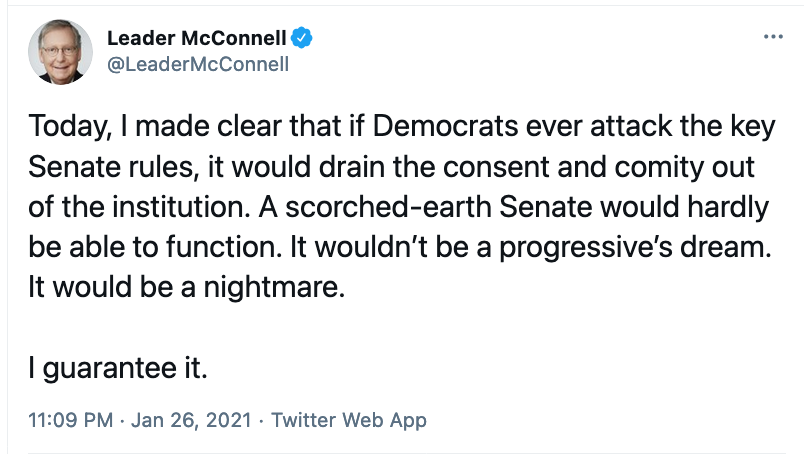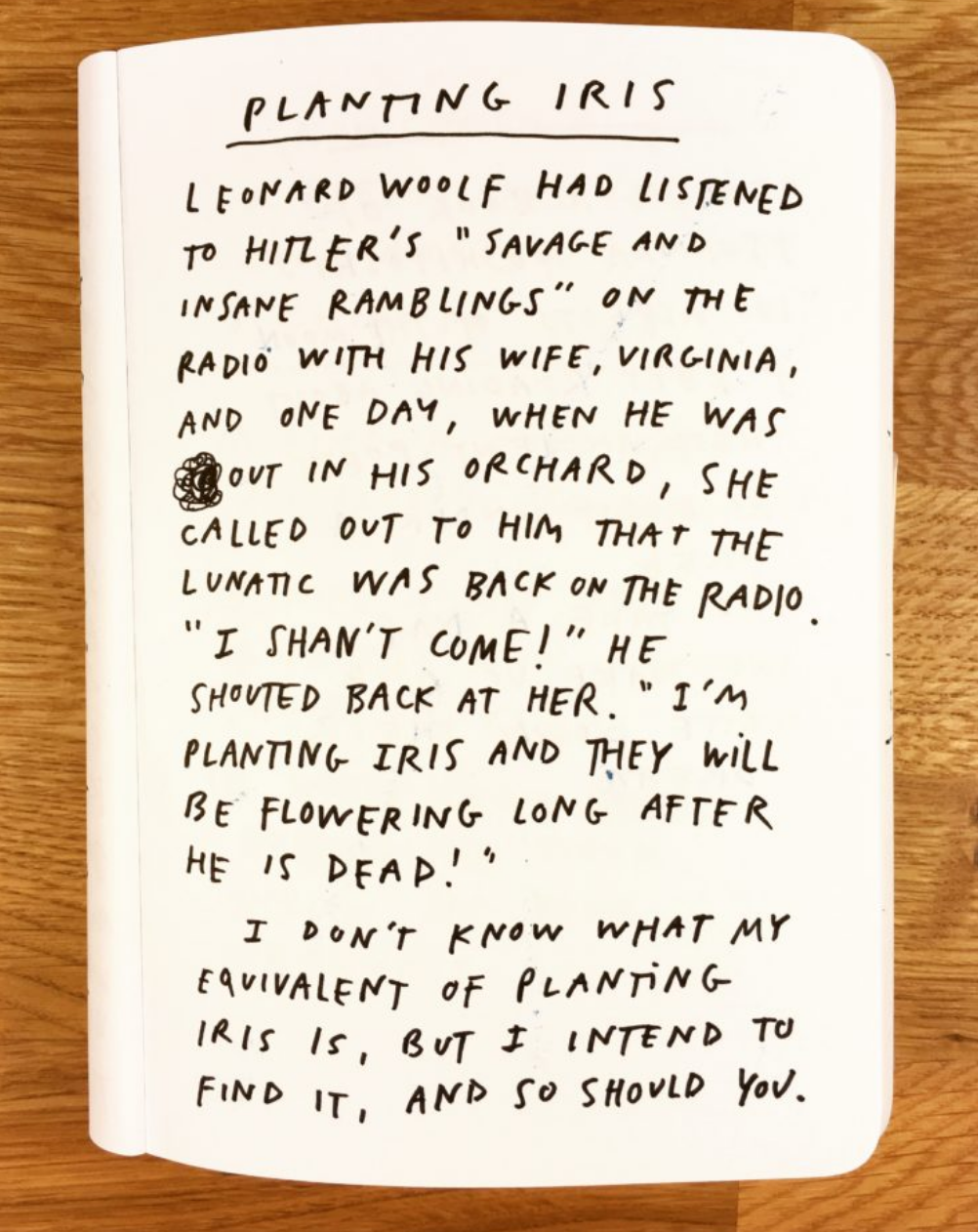Joke of the Week
Thanks to Cory for the link.
Vaccination Day
I had my first shot of the AstraZeneca-Oxford vaccine at 10:40 this morning. It was a heartwarming experience — finally, something in the post-Brexit UK working well. The health centre was located right next to a big car park. I was greeted, my appointment checked and given a square piece of paper with my name and a QR Code. Then queued briefly in a line that observed social distancing, had my temperature taken with one of those thermometer guns, put hand-sanitiser on my hands and was guided to a large room which had been subdivided into about ten impromptu booths, each with a GP and a nurse who scanned the QR code and retrieved my NHS medical data. I answered a few quick, routine questions (about whether I’d had any other vaccinations in the last week, whether I was a carer, etc.). Then removed my jacket and had the jab in about 20 seconds. After which I walked back to the car, and set off home.
The UK is, by any standards, doing vaccination brilliantly — having botched nearly everything else. How come? There are two parts to the answer. The first is that it’s being done by the NHS and not outsourced to one of the corrupt, incompetent outfits which have been parasitic on neoliberal British governments (of both parties) for decades — and which screwed up track-and-trace. The second is that, for once, the Johnson government made a good bet on vaccine production. The story of how that happened is told today in a fascinating Guardian piece by Daniel Boffey and Dan Sabbagh which is worth reading in full.
Quote of the Day
“In this country American means white. Everybody else has to hyphenate.”
- Toni Morrison
Musical alternative to the morning’s radio news
Clementi Sonata in B-Flat Major, Op. 24 No. 2
And if you think some of this sounds familiar well, maybe it is. Remind you of any Mozart opera overture?
Thanks to Tom Parkhill for the tip.
Long Read of the Day
The age of the cyber romantics is coming to an end
Great essay in NOEMA by Onora O’Neill. Sample:
This is not the first time that new technologies have disrupted established communicative practices and standards. Plato tells us that Socrates was so worried by the written word’s disruption of communication that he relied entirely on the spoken word. Luckily Plato did write, or we would know nothing about Socrates’ misgivings. Socrates worried his words would go fatherless into the world, reaching sundry readers with nobody present to explain what was meant or to clear up misunderstandings.
The problem with writing, however, was not that texts can be separated from their authors and cannot explain themselves, but that the practices of attribution, validation, authorization and commentary, on which writing and publishing now depend, had not been developed in ancient Greece. Now that those practices and standards are in place, we often think of the written word as a particularly robust and reliable way of communicating content accurately and responsibly.
Onora is a really formidable intellectual. I’ve never been to a talk she’s given without coming away seeing things in a new light or from a different perspective. So this is worth reading in full, especially at the moment.
Something I really liked
Austin Kleon kept a diary to get him through the Trump years. This is what started it off.
This blog is also available as a daily email. If you think this might suit you better, why not subscribe? One email a day, delivered to your inbox at 7am UK time. It’s free, and there’s a one-click unsubscribe if you decide that your inbox is full enough already!


